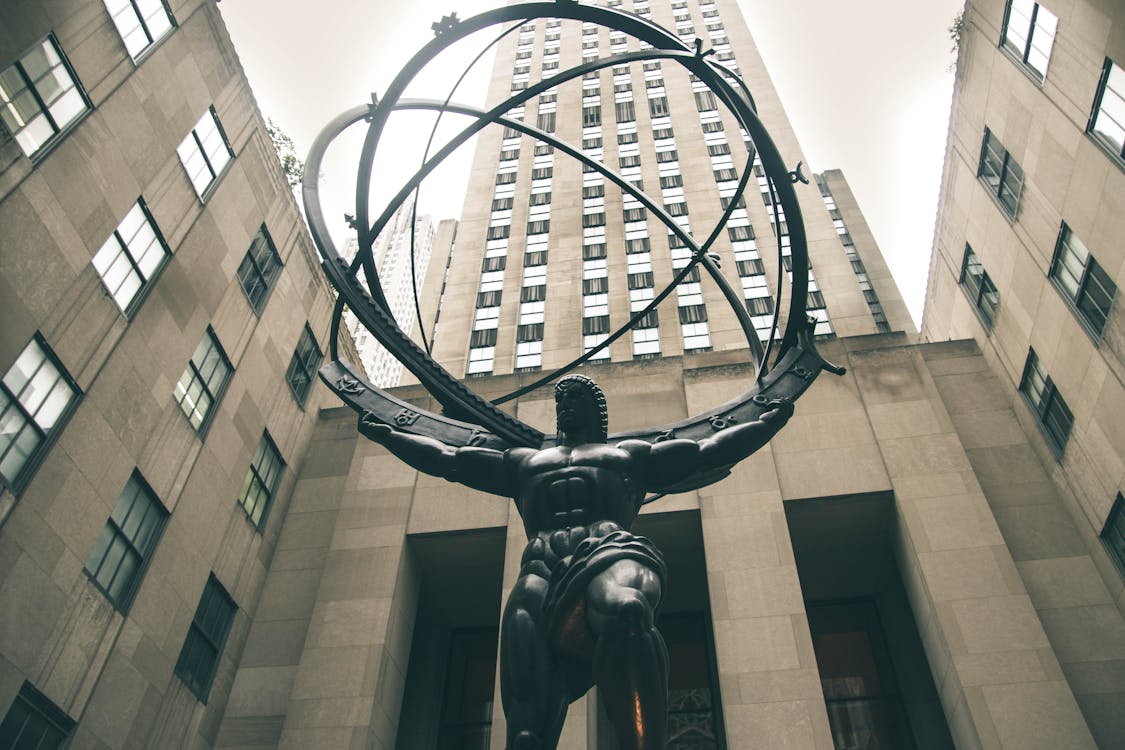Atlas, the giant of Greek mythology, is one of the most iconic figures of the ancient world. Often depicted holding up the entire world on his shoulders, Atlas is a figure that has captivated the human imagination for centuries. But where did this mighty titan come from, and why does he bear such an immense burden? Here, we will delve into the origins of Atlas and explore the mythological significance behind his iconic image.

According to Greek mythology, Atlas was one of the Titans, a race of powerful deities that existed before the Olympian gods. Atlas was the son of Iapetus and Clymene, two Titans who were themselves the children of Uranus and Gaia, the sky and earth gods. Atlas was one of the most powerful of the Titans and was said to possess incredible strength and endurance.
Atlas' greatest claim to fame, however, is his role in the Titanomachy, the great war between the Titans and the Olympians. The Titans, led by Cronus, rebelled against their father Uranus, and were eventually defeated by the Olympians, led by Zeus. As punishment for their rebellion, Atlas and the other Titans were banished to the depths of the earth, where they were forced to carry the weight of the heavens on their shoulders for all eternity.
The image of Atlas carrying the weight of the heavens on his shoulders has become one of the most iconic images in all of mythology. But what is the significance of this image, and why has it endured for so long? Some scholars believe that the image of Atlas holding up the world is a metaphor for the burden of human suffering. In this interpretation, Atlas represents the human condition, burdened by the weight of the world and struggling to bear it.
Others see Atlas' burden as a metaphor for the struggles of the natural world. The heavens, in this interpretation, represent the natural world, with all its beauty and chaos, while Atlas represents the human desire to control and understand it. By holding up the heavens, Atlas is attempting to bring order to the natural world, to make sense of it, and to master it.
Regardless of the interpretation, Atlas remains one of the most enduring figures of Greek mythology. His strength and endurance, his unwavering determination in the face of adversity, and his willingness to bear the weight of the world on his shoulders have inspired generations of people to strive for greatness, to overcome their own struggles, and to make sense of the world around them.
In conclusion, the myth of Atlas is one of the most enduring and captivating stories of Greek mythology. Whether seen as a metaphor for the human condition or as a symbol of our attempts to understand and control the natural world, the image of Atlas holding up the heavens on his shoulders remains a powerful and resonant symbol to this day. Whether you are a fan of mythology or simply fascinated by the mysteries of the ancient world, the story of Atlas is one that is sure to inspire and captivate you for years to come.